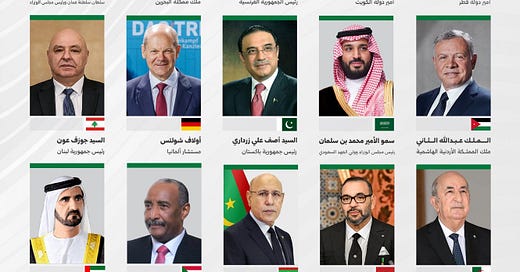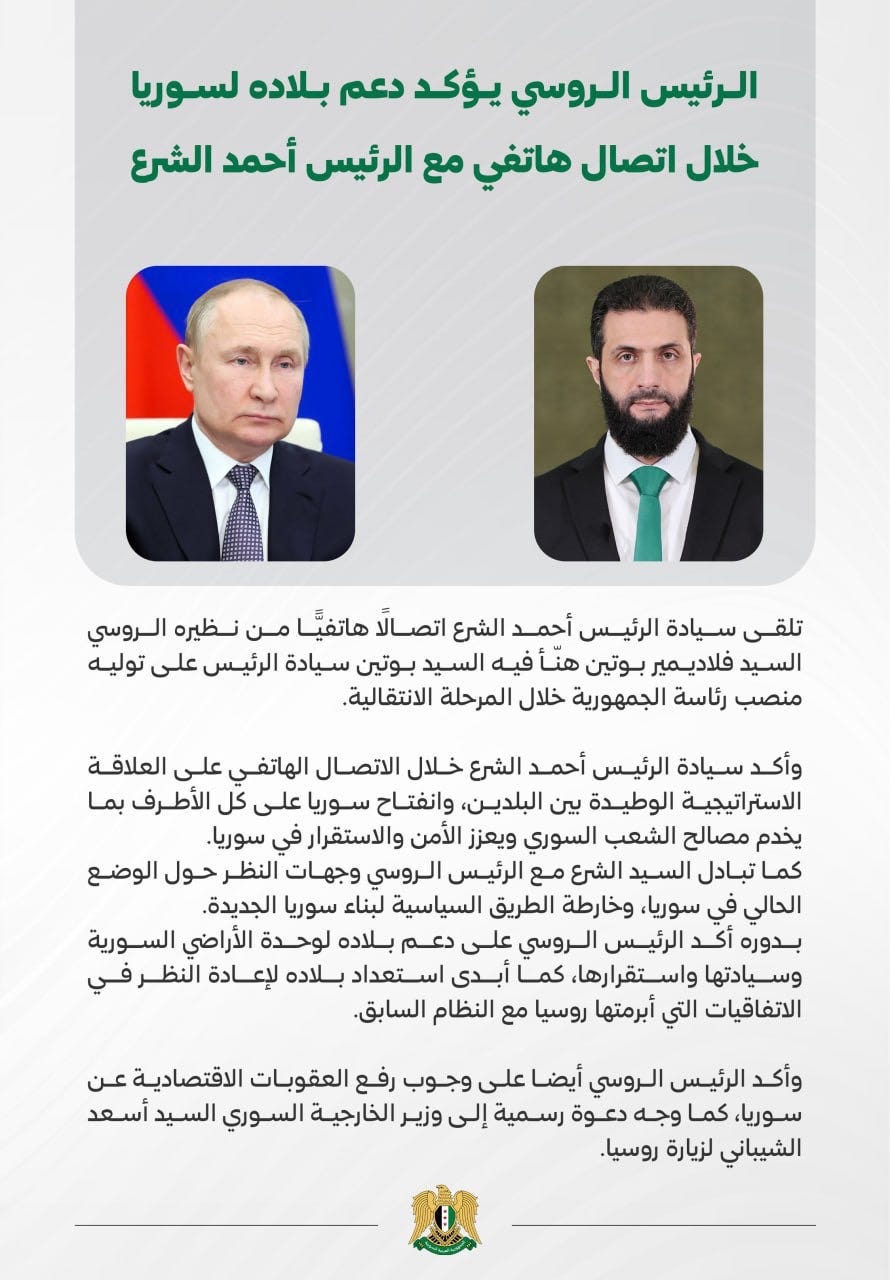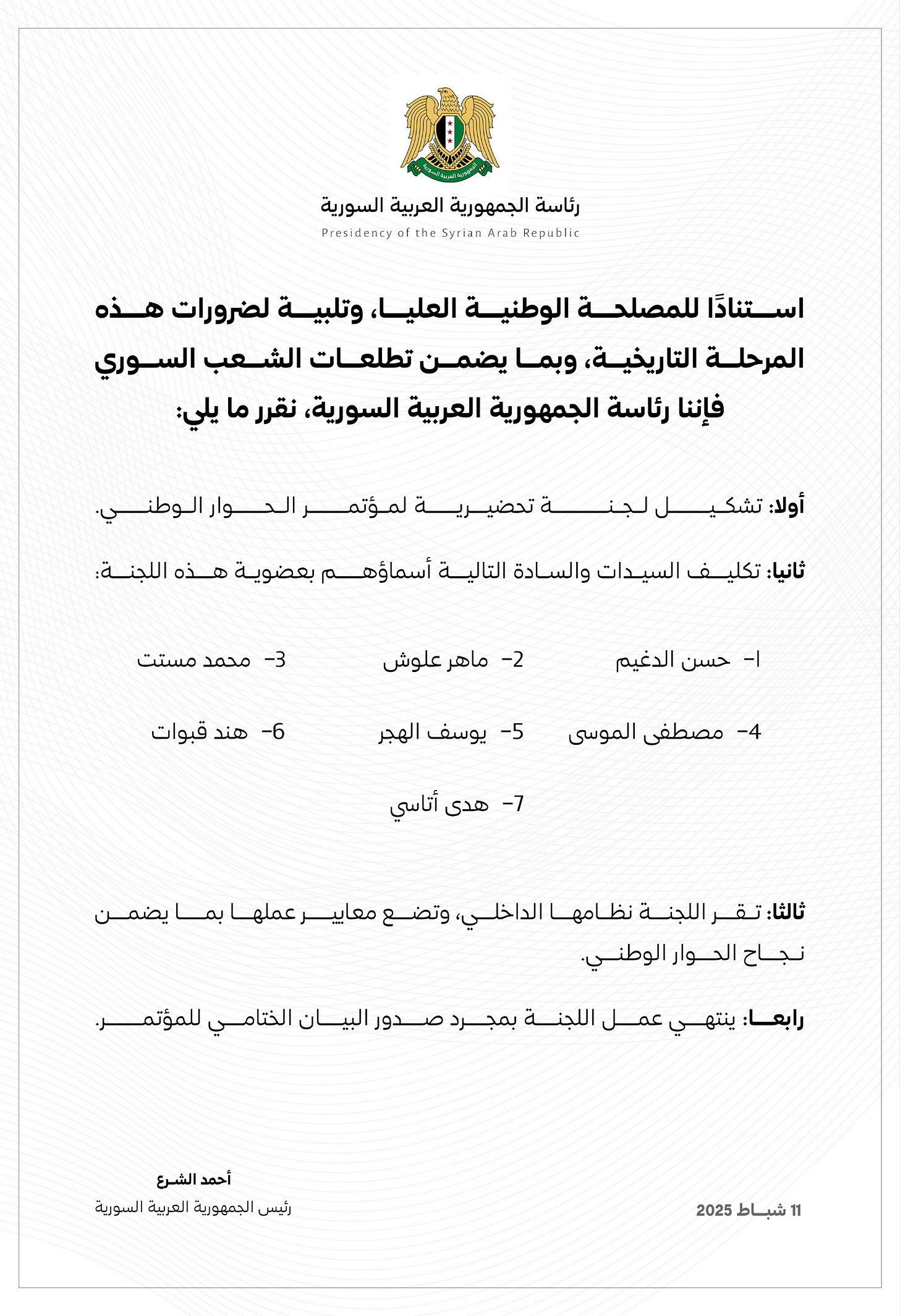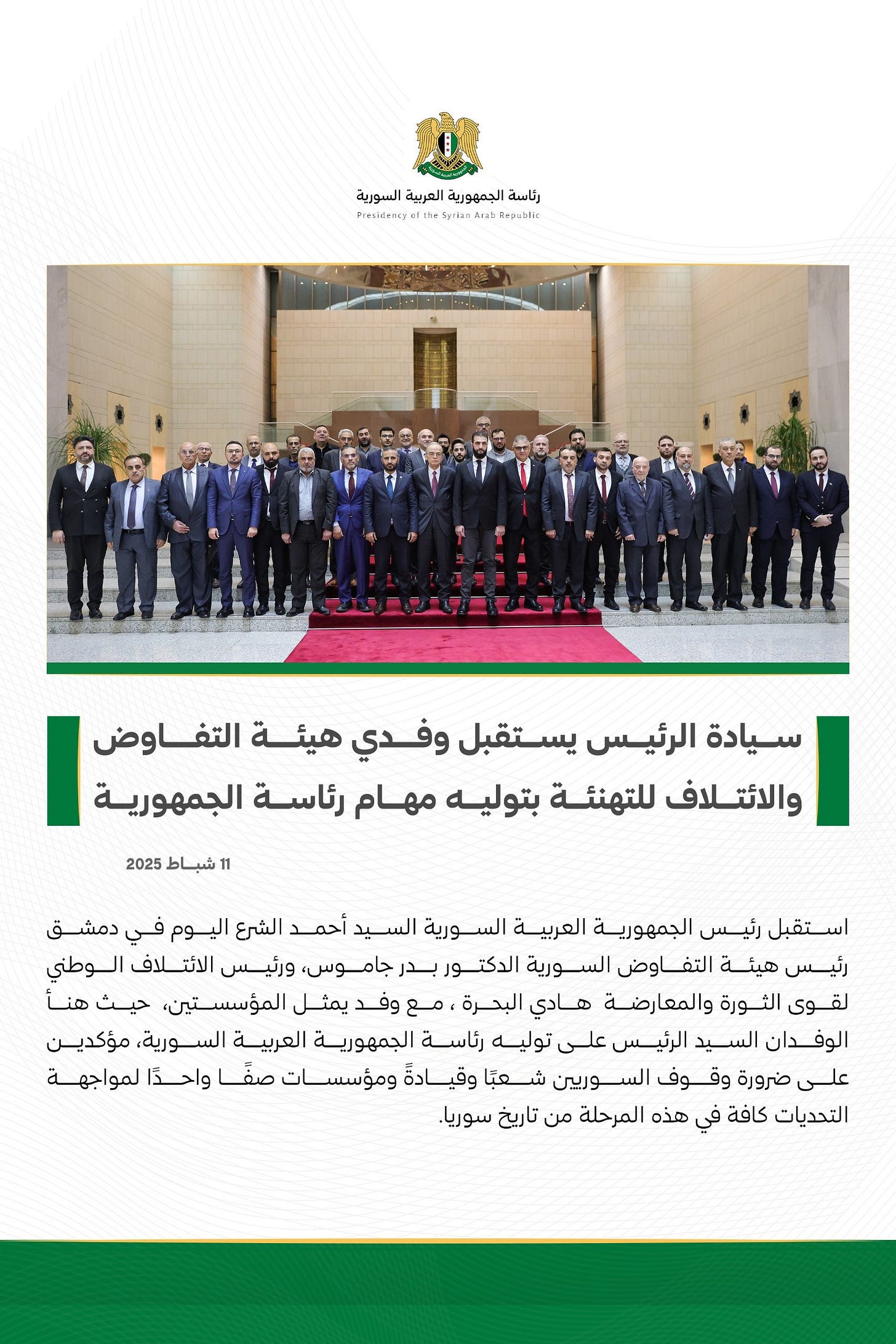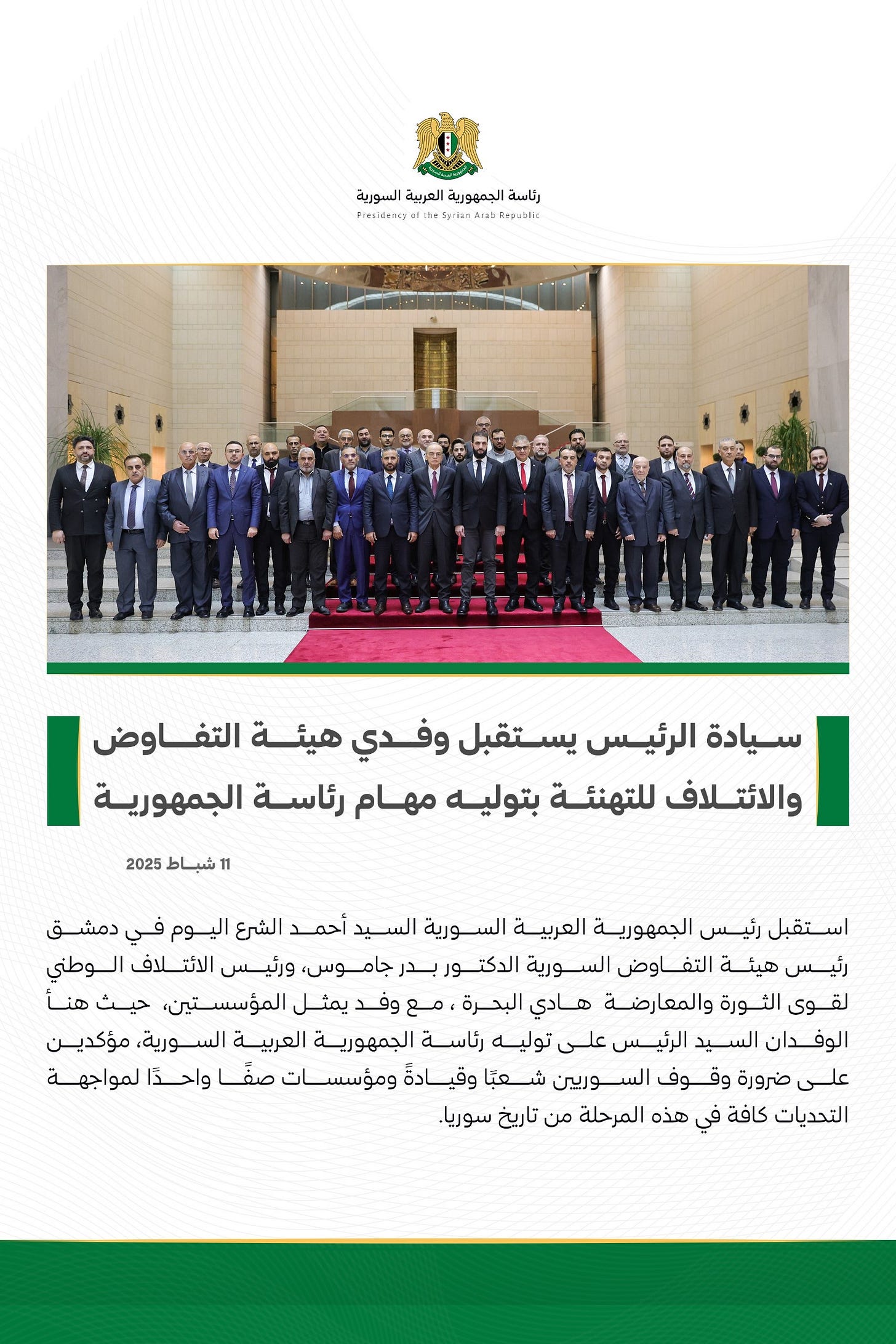Riyadh Strives to Solidify a Transition Amid Regional Power Shifts
Rumor Intelligence (RUMINT) reports, Saudi Arabia is working behind the scenes to host a high-level gathering in Riyadh during the upcoming Putin-Trump summit, which would also include a meeting with Syria’s new transitional president, Ahmed Al-Sharaa.
This initiative comes on the heels of extensive diplomatic engagement, highlighted by visits and phone calls from 25 heads of state—clear evidence of the international community’s renewed focus on Syria following the collapse of the Assad regime and amid concerns about Iran’s decreasing leverage in the Levant.
In a recently released statement from Damascus, the Syrian presidency provided details of a phone call between President Al-Sharaa and Russian President Vladimir Putin.
During the conversation, Putin offered congratulations to Al-Sharaa on taking office during Syria’s transitional phase. Both leaders discussed reinforcing their strategic ties, with Al-Sharaa confirming Syria’s willingness to collaborate with all partners in pursuit of security and stability. Putin pledged support for Syria’s territorial sovereignty and integrity, while indicating readiness to reconsider prior agreements made with the former regime. They also addressed the prospect of lifting economic sanctions against Syria, and Putin extended an invitation to Foreign Minister Asaad Al-Shaibani to visit Moscow.
In tandem with these diplomatic overtures, President Al-Sharaa has established a seven-member preparatory committee to organize a National Dialogue Conference. A presidential decree dated February 11, 2025, underscores this move as vital to meeting Syria’s “supreme national interest” at a historically critical juncture. The committee—consisting of Hassan Al-Dughaim, Maher Alloush, Mohammad Musattat, Mustafa Al-Mousa, Yousef Al-Hajjar, Hind Quwayat, and Huda Atasi—will develop internal guidelines and success metrics for the dialogue. Their mandate will conclude when the conference issues its final communiqué.
On the same day, two key opposition bodies—the Syrian Negotiation Commission, led by Dr. Badr Jamous, and the National Coalition for Revolutionary and Opposition Forces, headed by Hadi Al-Bahra—formally met with President Al-Sharaa in Damascus. In a symbolic gesture of reconciliation, both groups handed over their official records to the Syrian government and committed to fold their operations into national institutions. Discussions centered on a unified strategy for Syria’s political transition, encompassing the formation of a broad-based transitional government, the drafting of a new constitution, and the organization of nationwide elections.
Commentary: Although many observers have welcomed these steps with cautious optimism, questions remain about whether Syria’s transitional process can steer clear of the setbacks experienced in Yemen, where a similar path led to further conflict. Even so, Saudi Arabia’s diplomatic maneuvering and increased global engagement signal an effort to stabilize Syria and contain Iran’s regional ambitions. Ultimately, the resilience of this transition will be tested by the volatile dynamics of the Middle East and the lasting effects of Syria’s protracted civil war.

